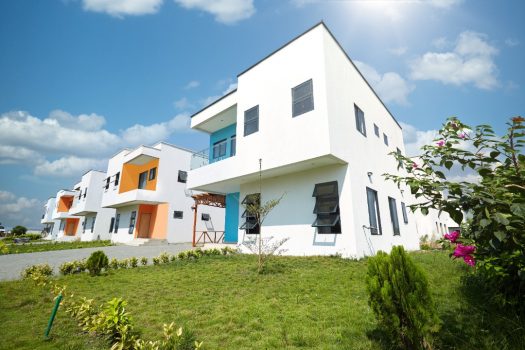Are you seeking to establish a thriving business in Ghana? Look no further! We have compiled a list of the top 10 industries that offer the most promising investment opportunities in Ghana. By investing in these industries, you can position yourself for success and growth in the country’s thriving business landscape.
Whether you are a local resident with dreams of launching your own enterprise or a foreigner seeking to tap into the vibrant Ghanaian market, it is essential to identify the industries that hold the greatest potential for success.
Let’s delve in!
Industries to Invest in Ghana: The Agriculture Industry
The first on the list of industries to invest in Ghana is the agriculture industry. Ghana’s agricultural sector has been a driving force behind the nation’s economy for centuries. In addition to significantly boosting the nation’s Gross Domestic Product (GDP), it has given a sizeable portion of the population employment. Each year, the industry contributes over 22% to the GDP of the country. The rich and diverse landscape of Ghana allows for a wide range of agricultural activities, making this sector an attractive option for entrepreneurs looking to invest in the nation’s growth.
Fish Farming
Ghana’s population has a strong affinity for seafood, and this demand continues to grow steadily. Entrepreneurs can capitalise on this by investing in fish farming operations, which have the potential to cater to both domestic consumption and international export markets.
Opportunities in Fish Farming:
- Tilapia Farming: Tilapia is one of the most commonly farmed fish in Ghana due to its adaptability and high market demand.
- Catfish Farming: Catfish farming is another lucrative option, with catfish being a favourite in many local dishes.
- Export Potential: Ghana’s fish farming industry can tap into international markets, particularly in neighbouring West African countries where there is a demand for quality fish products.
Poultry and Animal Farming
Ghanaians have a consistent and high demand for poultry and meat products. Starting a poultry or animal farming business can be a profitable venture in this market. Rearing chickens, turkeys, goats, or cattle can help meet the rising demand for quality meat products.
Opportunities in Poultry and Animal Farming:
- Broiler Farming: Raising broiler chickens for meat production is a popular choice due to the shorter growth cycle.
- Egg Production: Poultry farms specialising in egg production can also be lucrative, as eggs are a staple in Ghanaian diets.
- Integrated Livestock Farming: Combining poultry and animal farming can create synergy in terms of resource utilisation and waste management.
Cash Crops
Ghana is renowned for its cultivation of cash crops, which are crucial export commodities that contribute significantly to the country’s foreign exchange earnings. Entrepreneurs can explore opportunities in cash crop farming, with cocoa being a standout option. The government provides support to cocoa farmers, and this sector remains a pillar of Ghana’s agricultural industry.
Opportunities in Cash Crop Farming:
- Cocoa Farming: Ghana is one of the world’s top cocoa producers. Cocoa farming offers consistent demand and government-backed support programmes for farmers.
- Coffee Cultivation: Coffee production in Ghana has been on the rise, with a growing international market for high-quality coffee.
- Oil Palm Plantations: The oil palm industry has potential for growth, with palm oil being a versatile product used in various food and industrial applications.
As Ghana continues to modernise its agricultural practices and invest in infrastructure, the opportunities in this sector are bound to grow. Whether you’re interested in aquaculture, livestock, or cash crop farming, Ghana’s agricultural landscape offers fertile ground for success and prosperity.

Industries to Invest in Ghana: Financial Industry
Ghana’s financial sector has been a beacon of stability in West Africa, and entrepreneurs can capitalize on its growth and well-regulated environment by entering the financial services industry. Two key areas within this sector to consider are banking and insurance.
Banking
The banking sector in Ghana is highly competitive and offers a wide array of opportunities for entrepreneurs looking to make an impact. With a focus on financial inclusion, there are several avenues to explore.
Opportunities in Banking:
- Microfinance Institutions: Establishing microfinance institutions can be a rewarding venture, especially in rural and underserved areas. These institutions provide financial services to small businesses and individuals who may not have access to traditional banks.
- Fintech Solutions: Fintech companies have been gaining traction in Ghana, offering digital banking and payment solutions. Entrepreneurs can develop innovative fintech platforms and mobile banking applications to tap into the growing demand for digital financial services.
- Digital Lending Platforms: Addressing the credit needs of consumers and small businesses by providing digital lending services can be a lucrative niche. Ensuring responsible lending practices is key to success in this space.
Insurance
As Ghana’s middle class continues to expand, so does awareness of the importance of insurance. The insurance sector is poised for substantial growth, offering a range of coverage options to meet the evolving needs of the population.
Opportunities in Insurance:
- Life Insurance: Offering life insurance products that provide financial security to beneficiaries in the event of the insured’s death is a fundamental aspect of the insurance sector.
- Health Insurance: The demand for health insurance coverage is on the rise. Entrepreneurs can establish health insurance companies or agencies that provide comprehensive health coverage to individuals and families.
- Property and Automobile Insurance: With the increasing number of vehicles and property owners in Ghana, there is a growing demand for insurance coverage to protect against accidents, theft, and damage.
Ghana’s financial services industry presents a wealth of opportunities for entrepreneurs looking to make a positive impact on individuals and businesses. Whether you choose to venture into banking, microfinance, fintech, or insurance, the growing middle class and evolving financial landscape in Ghana create a conducive environment for success in the financial services sector.
Industries to Invest in Ghana: The Real Estate Industry
Ghana’s real estate sector is experiencing a significant boom, presenting an array of opportunities for entrepreneurs. The driving forces behind this growth are the country’s housing deficit of 1.7 million and a shortage of commercial properties, particularly in major cities like Accra, Kumasi, and Takoradi.
Commercial Properties
Investing in commercial properties in major cities like Accra, Kumasi, and Takoradi can generate substantial rental income. Ghana’s growing economy has attracted businesses, both local and foreign, seeking suitable spaces for their operations.
Opportunities in Commercial Properties
- Office Spaces: Ghana’s growing economy has attracted businesses, both local and foreign, seeking suitable spaces to establish or expand their operations. Entrepreneurs can invest in office space developments, targeting areas with high business activity.
- Warehouses and Industrial Spaces: With the growth of the manufacturing and logistics sectors, there is a growing demand for warehouses and industrial spaces. Entrepreneurs can invest in developing modern warehouse facilities equipped with the latest logistics technology. Locations like Tema, Takoradi, and Spintex can offer strategic advantages for these types of properties.
- Retail Stores: Ghana’s retail industry is thriving thanks to a growing middle class and higher consumer spending. Entrepreneurs can consider investing in retail properties, including shopping malls, plazas, and standalone stores. Creating attractive, well-designed retail spaces can attract both local and international retailers.
- Co-working Spaces: The rise of remote work and entrepreneurship has fueled the demand for co-working spaces. Entrepreneurs can venture into this niche by creating co-working facilities that cater to professionals, startups, and freelancers. Offering flexible and affordable workspace solutions can be particularly attractive in urban areas.
Residential Properties
Ghana is grappling with a significant housing deficit, particularly in urban areas. Entrepreneurs can play a crucial role in addressing this issue by developing affordable housing units. Targeting middle-income earners with reasonably priced homes can be a profitable and socially impactful endeavour.
Opportunities in Residential Properties
- Gated Communities: The concept of gated communities is gaining traction in Ghana, offering residents a secure and well-planned living environment. Entrepreneurs can develop gated housing estates with modern amenities, such as recreational facilities, green spaces, and 24/7 security. These properties can attract families and individuals seeking a higher quality of life.
- Luxury Housing: In addition to affordable housing, there is also a growing demand for luxury properties, especially in affluent neighbourhoods. Entrepreneurs with a higher risk appetite can invest in luxury residential developments, targeting high-net-worth individuals, expatriates, and diplomats.
- Student Housing: Ghana’s education sector is vibrant, with numerous universities and colleges. Entrepreneurs can explore opportunities in student housing by developing accommodations tailored to the needs of students. Proximity to educational institutions and amenities such as study areas and communal spaces can make these properties appealing.
For businesspeople looking at industries to invest in Ghana, the real estate market presents a wide range of opportunities. With the country’s continued economic growth and the persistent housing deficit, the demand for real estate remains robust. Entrepreneurs who can identify the right niches, deliver value, and navigate the complexities of the real estate industry have the potential to start and build a thriving business in Ghana.

Industries to Invest in Ghana: Home Technology
In an era of rapid technological advancement, the demand for home technology solutions, including smart homes and security systems, is on the rise in Ghana. Entrepreneurs can capitalize on this trend by offering innovative solutions that enhance comfort, energy efficiency, and security.
Smart Homes
Smart home solutions have gained popularity in Ghana, offering residents the convenience of controlling various aspects of their homes through connected devices. Entrepreneurs can tap into this market by providing smart home installations and services.
Opportunities in Smart Homes:
- Smart Lighting: Installing automated lighting systems that adjust brightness and colour to create ambience and save energy.
- Security Cameras: Integrating high-quality surveillance cameras with remote monitoring capabilities to enhance security.
- Home Automation: Offering comprehensive home automation systems that control lighting, HVAC, entertainment, and security from a single interface.
- Energy-Efficient Appliances: Providing energy-efficient appliances, such as smart thermostats and appliances, to reduce utility bills and environmental impact.
Security Systems
Ghana’s increasing security concerns, especially in the major cities like Accra and Kumasi, make the provision of security systems and services highly relevant. Entrepreneurs can address the security needs of both residential and commercial clients by offering advanced security solutions.
Opportunities in Security Systems:
- Alarm Systems: Installing alarm systems that detect unauthorized entry, fire, or other emergencies provides peace of mind to homeowners and businesses.
- Surveillance: Setting up surveillance systems with high-definition cameras, motion detection, and cloud storage for evidence collection.
- Access Control: Access control systems are crucial for securing both residential and commercial properties. Entrepreneurs can offer solutions such as biometric access control, keyless entry, and card-based systems to control who has access to the premises. This is particularly relevant for businesses and gated communities.
- Integration Services: Offering integration services that combine security systems, smart home technology, and home automation can provide a comprehensive solution for clients. This approach allows homeowners and businesses to manage their security and home technology from a single platform, enhancing convenience and efficiency.
As technology becomes more pervasive in daily life, Ghana’s home technology sector is expanding quickly. By offering smart home solutions that enhance convenience and security, entrepreneurs can meet the evolving needs of Ghanaian homeowners and businesses.
Industries to Invest in Ghana: Petroleum Industry
Ghana’s recent discoveries of oil reserves have transformed the nation’s energy landscape and created exciting opportunities for entrepreneurs in the energy sector. Entrepreneurs can explore the potential within Ghana’s crude oil industry, which encompasses oil exploration and downstream activities such as refining and distribution.
Opportunities in the Petroleum Industry
- Refining: Establishing oil refineries in Ghana represents a significant opportunity. Currently, the nation relies on imported refined petroleum products, which can be costly and affect energy security. Entrepreneurs can invest in state-of-the-art refineries to process crude oil locally, reducing the need for imports and ensuring a consistent supply of petroleum products to meet domestic demand.
- Petroleum Product Distribution: Establishing a distribution network for petroleum products, including gas stations and fuel depots, can provide a consistent revenue stream. Ensuring efficient logistics and supply chain management is crucial.
- Petrochemicals and Lubricants: Entrepreneurs can explore the production of petrochemicals and lubricants, which have applications in various industries, including manufacturing and transportation.
The oil sector is undoubtedly one of the industries to invest in Ghana and build quite a successful business. Whether through oil exploration or downstream activities like refining and distribution, entrepreneurs can contribute to Ghana’s energy security, economic growth, and technological advancement.

Industries to Invest in Ghana: Food and Drinks Industry
The food and drink industry in Ghana is a dynamic and vibrant sector that caters to the diverse culinary preferences of its people. With a growing population and increasing expats, Ghanaian consumers have developed a strong appetite for a variety of cuisines, both local and international. Entrepreneurs can capitalise on this by exploring various sub-sectors within the industry.
Fast Food and Restaurants
Ghanaians lead busy lives, and this has contributed to the rapid growth of the fast-food industry. Entrepreneurs can establish fast food outlets and restaurants that offer convenient dining options and quality dishes. These establishments cater to a wide range of preferences, from local favourites to international cuisines.
Opportunities in Fast Food and Restaurants:
- Local Cuisine: Serving traditional Ghanaian dishes like jollof rice, waakye, and fufu can attract both locals and tourists seeking an authentic culinary experience.
- International Franchises: Partnering with renowned international fast-food franchises like McDonald’s can provide instant recognition and access to a broad customer base.
- Continental Restaurants: Opening restaurants that serve continental dishes could attract expats and locals looking to try international dishes.
Beverage Manufacturing
The beverage industry in Ghana is experiencing significant growth, encompassing soft drinks, fruit juices, bottled water, and more. Entrepreneurs can invest in beverage manufacturing plants to cater to the country’s ever-thirsty market.
Opportunities in Beverage Manufacturing:
- Soft Drink Production: Manufacturing soft drinks, including carbonated and non-carbonated beverages, can be a lucrative venture. Creating unique flavours that appeal to local tastes can set your brand apart.
- Fruit Juice Processing: Ghana is known for its abundance of tropical fruits. Processing and packaging natural fruit juices can capture health-conscious consumers seeking refreshing and nutritious options.
- Bottled Water: Providing clean and purified bottled water is an essential service, given concerns about water quality. Bottled water businesses have a steady demand.
Cafes, Pastries, and Bakeries
Coffee shops, pastry outlets, and bakeries have become thriving businesses in Ghana. The younger population, in particular, enjoys the experience of coffee culture and indulging in freshly baked goods. Entrepreneurs can consider opening trendy cafes and artisanal bakeries to tap into this growing market.
Opportunities in Cafes, Pastries, and Bakeries:
- Coffee Culture: The coffee culture is on the rise, and establishing coffee shops that offer specialty brews, such as espresso, cappuccino, and cold brew, can attract a loyal customer base.
- Artisanal Baking: Artisanal bakeries that produce a variety of bread, pastries, and desserts using high-quality ingredients can satisfy the cravings of those seeking delectable treats.
- Custom Cakes and Confections: Specializing in custom cakes, cupcakes, and confections for events and celebrations can be a niche market. Offering unique and personalized designs can set your business apart.
The food and drink industry in Ghana is not only about satisfying appetites but also about creating memorable culinary experiences. With the right vision, attention to detail, and proper business planning, entrepreneurs can establish thriving businesses that cater to the ever-evolving tastes and preferences of Ghanaian consumers.
Industries to Invest in Ghana: The Fashion Industry
Ghana’s fashion industry is a vibrant and dynamic sector that draws inspiration from its rich cultural heritage and the deep value its people place on fashion. Entrepreneurs can tap into this evergreen industry, which combines tradition with modern trends, creating a unique and captivating market.
Textiles
The textile industry in Ghana serves as a vibrant platform for creating and selling traditional and contemporary clothing and fabrics. Entrepreneurs can explore a wide range of opportunities within this sector, from manufacturing textiles to designing culturally rich products.
Opportunities in Textiles:
- Fabric Production: Setting up textile manufacturing units can involve producing traditional Ghanaian fabrics such as kente, adinkra, and batik, as well as modern materials to meet local and international demand.
- Textile Design: Entrepreneurs can establish textile design studios, creating unique and culturally significant patterns and prints that resonate with fashion enthusiasts globally.
- Eco-Friendly Textiles: Sustainability is an emerging trend in the fashion industry. Entrepreneurs can focus on producing eco-friendly textiles using organic and recycled materials.
Fashion Retail
Opening boutiques and fashion retail stores in Ghana can cater to the local demand for stylish clothing and accessories. The country has a growing fashion-conscious population that values individuality and expression through clothing.
Opportunities in Fashion Retail:
- Boutiques: Boutique fashion stores can offer a curated selection of clothing, showcasing local and international designs. Entrepreneurs can differentiate themselves by promoting unique and emerging fashion brands.
- Custom Tailoring: Offering custom-made clothing and tailoring services can appeal to customers seeking personalized and perfectly fitted garments.
- Accessories and Footwear: Expanding product offerings to include accessories such as jewellery, handbags, and footwear can diversify a fashion retail business.
Ghana’s Fashion Industry is a colourful and thriving sector where culture meets creativity. Entrepreneurs with a passion for fashion and an eye for design can find a welcoming market in Ghana, whether through textiles, fashion retail, or a combination of both. Entrepreneurs can have a significant impact in this evergreen industry and add to the cultural and economic vitality of the country by embracing tradition and remaining aware of changing fashion trends.

Industries to Invest in Ghana: The Healthcare Industry
Ghana’s healthcare sector faces several challenges, including pressure on government hospitals and inadequate access to quality healthcare services. Entrepreneurs can play a pivotal role in improving the healthcare landscape by establishing privately equipped hospitals and healthcare facilities, as well as pharmacies and healthcare supply stores.
Private Hospitals
Private hospitals and clinics have the potential to provide high-quality healthcare services, reducing the burden on the public healthcare system. Entrepreneurs can invest in modern healthcare infrastructure, medical equipment, and specialized healthcare services to cater to the diverse healthcare needs of the population.
Opportunities in Private Hospitals:
- Specialized Care: Establishing specialized hospitals or clinics, such as maternity clinics, surgical centres, or cardiac hospitals, can address specific healthcare needs and attract patients seeking expert care.
- Telemedicine: Integrating telemedicine services can expand access to healthcare, especially in underserved rural areas, and provide remote consultations and medical advice.
- Healthcare Tourism: Ghana has the potential to become a destination for medical tourism in Africa by offering world-class healthcare services at competitive prices. Entrepreneurs can tap into this growing trend.
Pharmacies and Healthcare Supply Stores
Setting up pharmacies and healthcare supply stores can play a crucial role in addressing the demand for medications and medical supplies. Entrepreneurs can provide a wide range of products, including prescription and over-the-counter medications, along with health and wellness products, catering to the healthcare needs of the local population.
Opportunities in Pharmacies and Healthcare Supply Stores:
- Medication Dispensing: Providing reliable and accessible medication dispensing services can ensure that patients receive the medications they need promptly.
- Health Education: Offering health education and wellness programmes can empower customers to make informed decisions about their health, promoting preventive care.
- Online Pharmacy Services: Embracing e-commerce and online pharmacy platforms can enhance accessibility and convenience for customers.
Entrepreneurs in Ghana have many opportunities to improve healthcare services by taking advantage of the healthcare sector’s opportunities. By establishing privately equipped hospitals, clinics, pharmacies, and healthcare supply stores, entrepreneurs can create a thriving healthcare business.
Industries to Invest in Ghana: The Education Industry
The education sector in Ghana offers a wide range of opportunities at various levels, addressing the need for quality and accessible education. Entrepreneurs can play a vital role in this sector by establishing private schools, vocational training centres, and institutions of higher learning.
Private Schools
Private schools, especially at the primary and secondary levels, provide valuable alternatives for parents seeking quality education for their children. Parents’ desire for individualised learning experiences and higher educational standards drives demand for private education.
Opportunities in Private Schools:
- Primary and Secondary Education: Entrepreneurs can establish private primary and secondary schools that offer a holistic education, including extracurricular activities and modern teaching methods.
- International Curriculum: Implementing international curricula such as the Cambridge International Examinations (CIE) or the International Baccalaureate (IB) programme can attract students seeking globally recognised qualifications.
- Specialised Education: Catering to niche markets by providing specialised education, such as Montessori, STEM (Science, Technology, Engineering, and Mathematics), or arts-focused programmes, can set private schools apart.
Higher Education
Investing in higher education institutions and vocational training centres can cater to the needs of both domestic and international students. Ghanaian universities, including the University of Ghana and Kwame Nkrumah University of Science and Technology, receive numerous applications from students across Africa, presenting opportunities for academic expansion.
Opportunities in Higher Education:
- Universities: Establishing new private universities and offering a wider range of programmes can attract students from Ghana and different African countries like Nigeria with diverse academic backgrounds.
- Vocational Training: Vocational training centres that offer practical skills in areas such as technology, agriculture, and healthcare can meet the demand for a skilled workforce.
By establishing private schools, vocational training centres, and higher education institutions that focus on quality, innovation, and accessibility, entrepreneurs can play a pivotal role in filling the knowledge gap and empowering individuals to achieve their educational aspirations while building a thriving business.
Industries to Invest in Ghana: The Tourism Industry
Finally, we can’t talk about industries to invest in Ghana and build thriving businesses without mentioning the Tourism Industry. Ghana’s tourism industry is flourishing, drawing visitors from around the world to historical sites, including castles and forts used during the transatlantic slave trade era. Entrepreneurs can play a pivotal role in enhancing the tourism experience by providing accommodations and unique cultural experiences.
Accommodations
Building hostels, resorts, and short-stay apartments can serve as accommodations for tourists. The increasing number of visitors, coupled with Ghana’s reputation as a safe and welcoming destination, creates a demand for diverse lodging options that cater to various preferences and budgets.
Opportunities in Accommodations:
- Hostels: Affordable and sociable accommodations can attract backpackers and budget-conscious travellers seeking a communal experience.
- Resorts: Developing luxury resorts along Ghana’s pristine beaches or in lush natural settings can cater to tourists looking for an upscale, relaxing getaway.
- Short-Stay Apartments: Providing fully furnished short-stay apartments through platforms like Airbnb can offer a home-away-from-home experience for travellers staying longer or with families.
Handmade Artefacts and Products
Tourists visiting Ghana are often captivated by the country’s rich culture and handmade artefacts. Entrepreneurs can explore the production and sale of these unique products, ranging from traditional crafts to contemporary artwork. Establishing souvenir shops and galleries can be a profitable endeavour that promotes Ghana’s cultural heritage.
Opportunities in Handmade Artefacts and Products:
- Traditional Crafts: Producing and selling traditional Ghanaian crafts such as kente cloth, Adinkra symbols, and wood carvings can attract tourists seeking authentic souvenirs.
- Contemporary Art: Supporting and promoting contemporary Ghanaian artists can create a vibrant arts scene that appeals to art enthusiasts and collectors.
- Cultural Experiences: Offering workshops and cultural experiences where tourists can learn about Ghanaian crafts, music, dance, and cuisine can enhance the overall visitor experience.
By providing diverse accommodations and promoting handmade artefacts and products, entrepreneurs can not only tap into the growing tourism market but also contribute to preserving and celebrating Ghana’s unique cultural identity.

Industries to Invest in Ghana—Final Thoughts
There is no doubt that Ghana provides both domestic and international businesspeople with a wide range of opportunities across numerous industries.
By understanding the unique characteristics of each sector and leveraging local examples and statistics, you can make informed decisions when starting a business in this dynamic and promising country.
No matter which industry you decide to pursue—agriculture, finance, real estate, technology, energy, food, fashion, healthcare, education, or tourism—do not forget to conduct thorough market research and business planning in order to make wise decisions and create a successful business.
Thinking of starting a business in Ghana? Check out these common reasons why businesses fail in Ghana and how you can avoid them.
Need help to start? Request a call!





